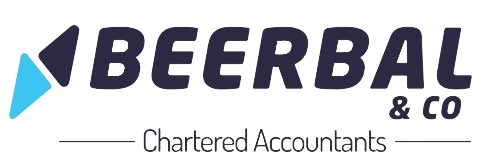
The world of business is ever-changing and complex and it can be difficult to keep up with the latest regulations and standards. Audit and assurance are important tools for businesses to ensure compliance with these regulations and standards, and to ensure the accuracy of their financial reporting.
Introduction to Audit & Assurance
Audit and assurance are important processes used by organizations and businesses to ensure that their financial statements, accounts, and other records are accurate and reliable.
Audit:
Auditing is the process of reviewing and verifying a company’s financial statements to make sure they accurately reflect the true financial position of the company.
Assurance:
Assurance involves providing objective opinions based on evidence collected during an audit so that stakeholders can have confidence in the accuracy of a company’s financial data.
Purpose of Audit & Assurance:
– The primary purpose of an audit is to provide stakeholders with reasonable assurance that a company’s stated financial position is fairly represented in its published accounts. During an audit, independent auditors review a company’s accounting systems as well as its internal controls over assets and liabilities. This review helps identify errors or potential fraud that could affect the accuracy of the company’s financial statements. The auditor also evaluates whether management has complied with relevant laws, regulations, accounting standards, industry practices, and other requirements related to preparing financial statements.
– Assurance provides stakeholders with additional confidence in a business’s reported information beyond what can be obtained from simply reading its published accounts. During an assurance engagement, independent auditors review evidence such as documents, contracts, and invoices to conclude whether a business’s processes are operating efficiently and effectively. Additionally, they may provide recommendations for improvements or changes that should be made to ensure compliance with laws or regulations or improve operational efficiency or effectiveness.
Who conducts Audit & assurance audits & assurance?
Audit & assurance engagements are conducted by trained professionals who have expertise in accounting principles such as Generally Accepted Accounting Principles (GAAP) or International Financial Reporting Standards (IFRS). They also possess knowledge of applicable laws and regulations governing areas such as reporting requirements for publicly traded companies or taxation matters for personal tax filings. These individuals use their knowledge along with detailed procedures including risk assessments; analytical reviews; tests of control; tests of detail; sampling techniques; inquiries; observation; confirmation requests; simulations; re-performance procedures; recalculations/reconstructions/verifications/validations etc., to assess the reliability of the information being provided by clients.
Ultimately these engagements help stakeholders make informed decisions regarding investments in companies whose results have been verified through professional audits & assurance services.
Types of audit and assurance
Audit and assurance are two terms that are often used interchangeably, but they have different meanings.
Types of Audit:
An audit may be of different types such as:
Financial statement audit:
The most common type of audit is a financial statement audit. This type of audit is conducted by an independent auditor who examines and verifies the accuracy of a company’s financial records. The auditor looks at things like cash flows, balance sheets, income statements, and equity accounts to ensure they comply with applicable laws and regulations. The objective of this type of audit is to assure that the company’s financial statements reflect its true financial position and performance.
Other types:
Other types of audits include:
- operational audits
- compliance audits
- forensic audits
- IT system audits
- internal control reviews
Types of Assurance:
Assurance services can also be divided into two categories:
Attestation engagements:
Attestation engagements typically involve issuing a report on management’s assertion on various topics such as compliance or internal controls over certain processes within a business entity. Examples include reports on internal control over financial reporting or agreed-upon procedures related to areas such as inventory counts or payroll processing.
Direct engagement:
Direct engagement services involve providing an opinion about matters such as fairness opinions for mergers & acquisitions activities or actuarial valuations for employee benefit plans.
It is important to note that there are certain differences between audit services and assurance services in terms of scope, attestations versus direct engagements, and legal requirements versus non-legal requirements.
Why are audits and assurance required?
Audit and assurance services are important for organizations to assess the accuracy and reliability of financial information.
- They help organizations identify and mitigate potential risks, ensuring that financial information is accurate and reliable.
- Audit and assurance services also provide external users with greater confidence in the reliability of the organization’s financial statements and other data.
- Organizations must protect stakeholders from any kind of fraud or misrepresentation of their financial status.
- Auditing provides a level of assurance that the organization’s financial statements are free from material misstatement due to errors, fraud, or other irregularities.
- Assurance services also provide added credibility to the organization’s internal processes and controls by assessing their adequacy in achieving desired outcomes.
- Share this post
